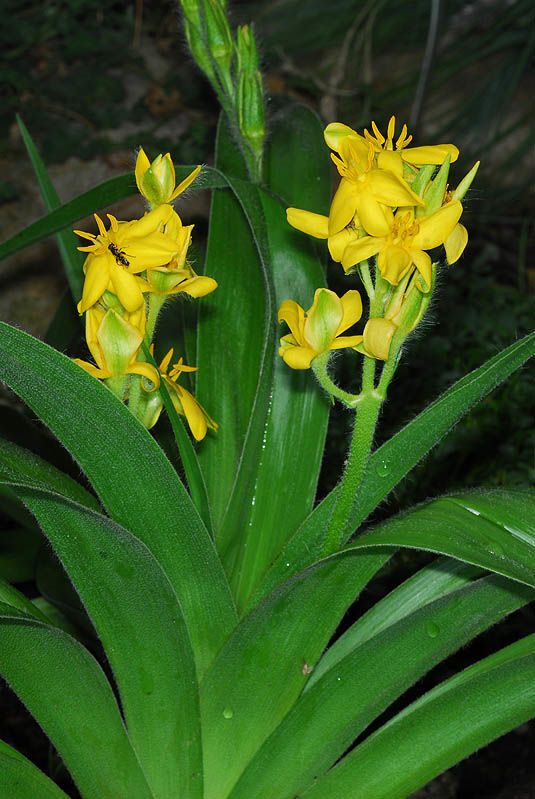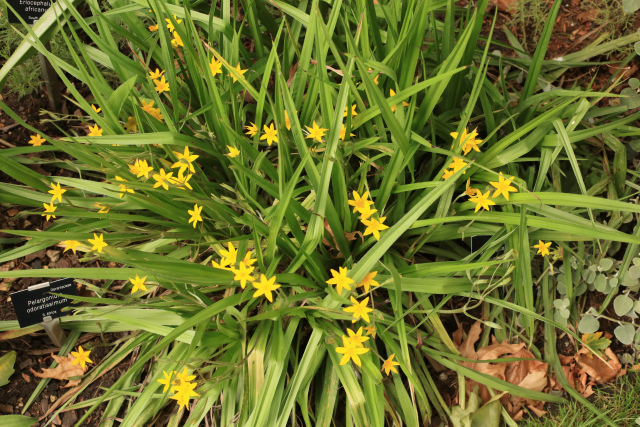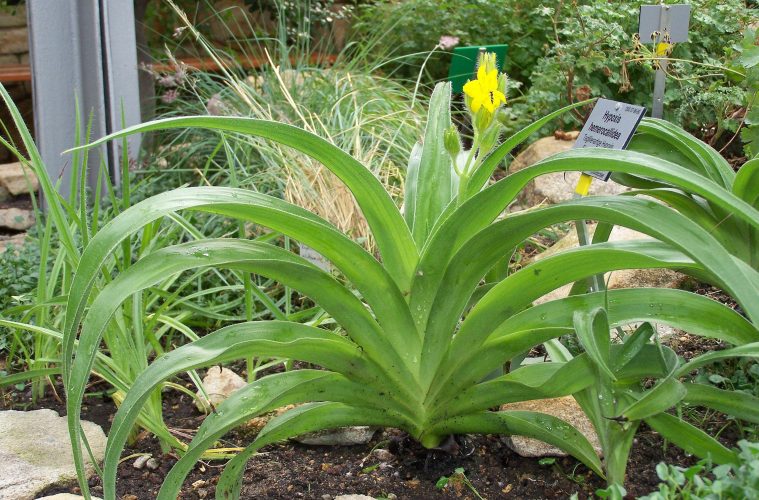The Hypoxidaceae family includes the wild African potato (hypoxis hemerocallidea), commonly referred to as the African potato or African star grass, as a therapeutic plant. It is indigenous to southern Africa, extending from South Africa to Mozambique and Zimbabwe in the north.
One of southern Africa’s medicinal treasures, the African potato, has previously generated controversy due to traditional herbalists’ assertions that, because of its therapeutic qualities and adverse effects, the plant can cure HIV/AIDS. Despite having a root that looks like a potato, the plant is not related to potatoes. The plant’s roots are used to create medication.

Image credit: Pixabay
The star grass has flat foliage, shaped like a wide grass, slightly hairy leaves which sprout outwards from the centre of the plant. It produces yellow star-shaped flowers on long slender stalks. These flowers produce small fruit capsules which possess the black seeds of the African potato.
The parts of the African potato used for medicinal purposes are the underground tuberous rootstock or corm. It is a hard, fleshy, mucilaginous, and dark brown or black on the outside and yellow-orange inside when freshly cut. It is usually cut fresh and used in herbal drinks, or dried and used in herbal teas, turned into powder, capsules, or tablets.
Benefits of African potato
According to research, star grass has been used for herbal and traditional alternative medicine for throughout history. However, there is little scientific of the beneficial effects of the African potato. Always seek advice from a medical practitioner before using African potato.

Image credit: Pexels
Adverse consequences
Consuming African potato roots can have a number of negative effects. The safety of using African wild potatoes while pregnant or nursing is unknown due to a lack of trustworthy information. Avoid using it just to be safe. People with cardiovascular conditions may get irregular heartbeats if they consume the wild plant. Beta-sitosterol and hypoxoside are two compounds that have been researched that are present in African wild potatoes. These substances may result in constipation, diarrhoea, gas, indigestion, or nausea.
Therefore, growing the African potato not only allows curious growers and researchers to explore its unique medicinal properties but also contributes to preserving a valuable part of African botanical heritage. While the plant holds promise for various health benefits, its use should always be approached with caution and proper guidance from healthcare professionals.
With ongoing research and responsible cultivation, the African potato remains a fascinating and important plant in traditional medicine, offering insights into the rich biodiversity of southern Africa.
ALSO SEE: HOW TO GROW POTATOES IN A CONTAINER
Featured image: Pixabay


